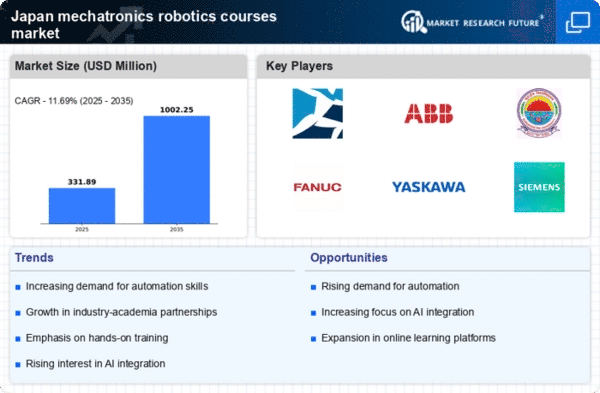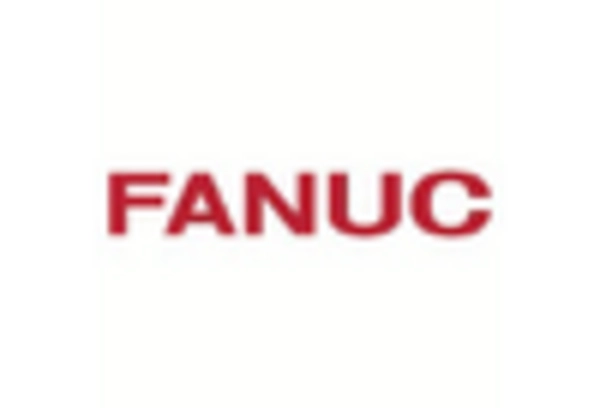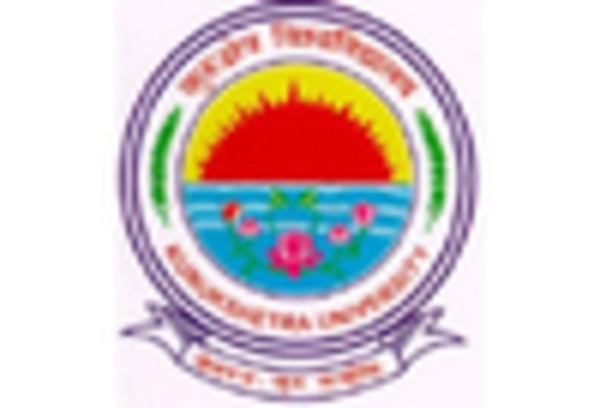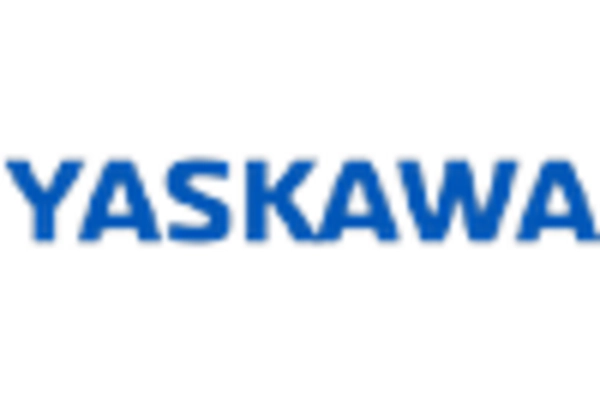Government Initiatives and Funding
Government initiatives play a crucial role in the mechatronics robotics-courses market. The Japanese government has been actively promoting STEM education and robotics through various funding programs and initiatives. For instance, the Ministry of Education has allocated substantial budgets to enhance robotics education in schools and universities. This financial support not only encourages institutions to develop comprehensive robotics curricula but also incentivizes students to pursue careers in this field. As a result, the mechatronics robotics-courses market is likely to benefit from increased enrollment and program development, fostering a skilled workforce that meets the demands of the evolving job market.
Rising Demand for Automation Skills
The demand for automation skills is a significant driver in the mechatronics robotics-courses market. As industries in Japan increasingly adopt automation technologies, there is a pressing need for professionals who can design, implement, and maintain automated systems. This shift is evident in sectors such as manufacturing, logistics, and healthcare, where automation is enhancing efficiency and productivity. According to recent data, approximately 70% of companies in Japan are investing in automation technologies, which in turn fuels the need for specialized education in mechatronics and robotics. Consequently, educational institutions are expanding their course offerings to meet this demand, further propelling the growth of the mechatronics robotics-courses market.
Technological Advancements in Robotics
The mechatronics robotics-courses market is experiencing a surge due to rapid technological advancements in robotics. Innovations in artificial intelligence, machine learning, and automation are reshaping the landscape of robotics education. As industries increasingly adopt these technologies, there is a growing demand for skilled professionals who can navigate complex robotic systems. In Japan, the robotics sector is projected to grow at a CAGR of 15% over the next five years, indicating a robust need for educational programs that equip students with the necessary skills. This trend is likely to drive enrollment in mechatronics robotics courses, as students seek to align their education with industry requirements.
Industry Collaboration and Partnerships
Collaboration between educational institutions and industry stakeholders is becoming increasingly prevalent in the mechatronics robotics-courses market. Partnerships with leading robotics companies provide students with access to cutting-edge technology and real-world applications. These collaborations often result in internship opportunities, workshops, and joint research projects, enhancing the educational experience. In Japan, several universities have established partnerships with major robotics firms, facilitating knowledge transfer and practical training. This trend not only enriches the curriculum but also ensures that graduates are well-prepared for the workforce, thereby driving the growth of the mechatronics robotics-courses market.
Increased Focus on Interdisciplinary Learning
The mechatronics robotics-courses market is witnessing a shift towards interdisciplinary learning approaches. As robotics integrates with fields such as computer science, electronics, and mechanical engineering, educational programs are evolving to reflect this convergence. In Japan, universities are increasingly offering interdisciplinary courses that combine elements of these diverse fields, preparing students for the multifaceted challenges of the robotics industry. This trend not only enhances the skill set of graduates but also aligns educational outcomes with industry needs. As a result, the mechatronics robotics-courses market is likely to see a rise in enrollment as students seek comprehensive education that equips them for a dynamic job market.
















